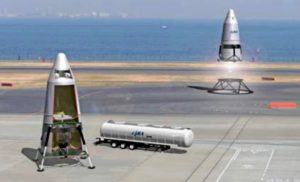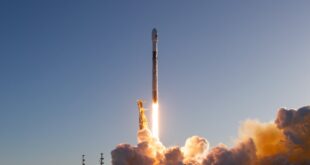
Japan’s space agency, JAXA, intends to enter the reusable space launch race to catch up with U.S. efforts. It has announced plans to develop a reusable rocket that can carry payloads into orbit on two consecutive days, aiming to cut the costs of space transportation, according to a report in Nikkei Asian Review.
JAXA aims to start test-launching and landing the roughly 7-meter rocket as early as the spring of 2019 and introduce it for regular operations in the 2020s. It has already confirmed that the rocket’s key components, including its engine, can endure more than 100 launches, significantly reducing costs compared with single-use models.
The rocket will be tested at a JAXA facility in Noshiro, on the northern coast of the Sea of Japan. Initial test launches will reach an altitude of 100 meters, gradually increasing to 5,000 meters. The agency will also test technology to guide the rocket’s return to a targeted landing point, and to adjust its engine thrust. It will also undertake the development of technology to slow the rocket’s fall by angling its body.
While the rocket is small, the agency believes the technology it incorporates can eventually be used with larger rockets carrying humans to space stations.
This new project revives JAXA’s past efforts to develop the basic technologies for reusable rockets. These previous efforts were scaled back after the U.S. space shuttle program’s attempt to develop reusable rockets was terminated back in 2011.
Since then, U.S. startup SpaceX has successfully test-launched and landed a large reusable rocket. Russia is also believed to be developing these capabilities; to date, Europe has declined to pursue this technology due to its cost.





